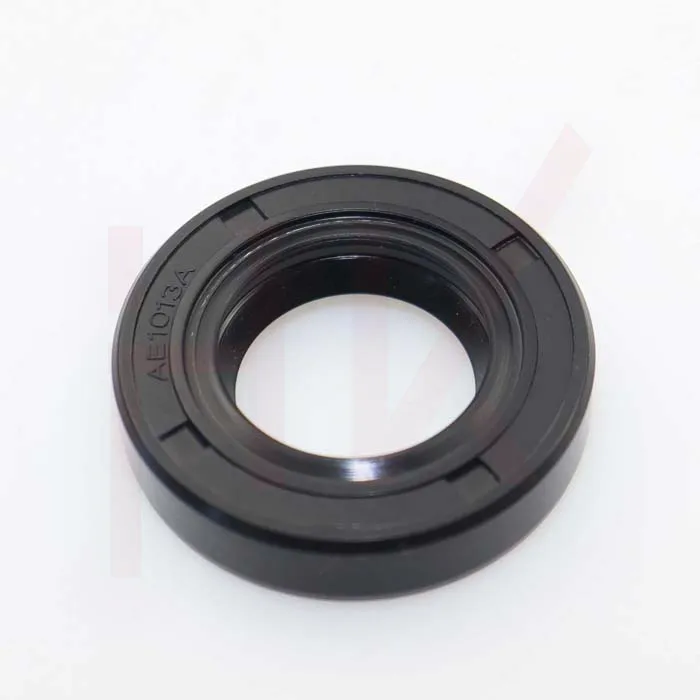Nov . 30, 2024 09:42 Back to list
hydraulic oil seal types
Understanding Hydraulic Oil Seal Types
Hydraulic oil seals are essential components in hydraulic systems, designed to prevent the leakage of hydraulic fluids under pressure. Given their crucial role in maintaining system integrity and performance, selecting the correct type of hydraulic oil seal is vital for the efficiency and longevity of hydraulic applications. In this article, we will explore the different types of hydraulic oil seals, their functions, and their specific applications.
The Importance of Hydraulic Oil Seals
Hydraulic systems rely on pressurized fluids to transmit power, and any leakage can lead to decreased efficiency, increased operational costs, and environmental hazards. Oil seals serve to contain the hydraulic fluid within the system while protecting it from external contaminants such as dirt, dust, and moisture. Therefore, choosing the right seal is critical for optimal performance.
Common Types of Hydraulic Oil Seals
1. O-Rings O-rings are circular seals made of elastomeric materials such as nitrile or fluorosilicone. They are widely used due to their simplicity and effectiveness in creating a tight seal in static and dynamic applications. O-rings can be used in a variety of hydraulic fittings and are conducive to various pressure levels.
2. U-Cups U-cup seals are designed to fit in a manner that resembles the letter “U.” They are predominantly used in piston applications due to their ability to withstand high pressures. The design enhances contact with the cylinder wall, thus ensuring minimal leakage. U-cups can be made from various materials, allowing for different levels of temperature and chemical resistance.
3. V-Rings V-rings, or V-seals, are another type of dynamic sealing solution typically used for shaft sealing. Their design allows them to adapt to shaft movement and provide a reliable seal against both dirt and oil. V-rings operate well in applications where there is lateral movement, making them popular in rotary applications.
hydraulic oil seal types

4. Lip Seals Also known as radial seals, lip seals consist of a circular design with a flexible sealing lip that makes contact with the shaft or housing. They are particularly effective in sealing against fluid leaks in rotating machinery. Commonly made from rubber or plastic materials, lip seals are versatile and can accommodate various shaft diameters.
5. Cassette Seals Cassette seals are pre-assembled seal units that typically include multiple sealing elements. They are designed for high-performance applications where heavy-duty sealing is required. Cassette seals can often handle extreme pressures and speeds, making them suitable for demanding hydraulic environments.
6. Backup Rings While not a seal by themselves, backup rings are used in conjunction with O-rings and lip seals to prevent extrusion and enhance sealing effectiveness in high-pressure conditions. These rings are made from harder materials and complement the primary sealing elements, extending the life of the hydraulic system.
Material Considerations
The choice of material for hydraulic oil seals is crucial, as it directly impacts performance. Common materials include Nitrile Rubber (NBR), which is good for general-purpose applications, and fluorocarbon rubber (FKM), which offers superior chemical resistance. Other specialized materials such as polyurethane provide enhanced durability against wear and tear in high-stress environments.
Conclusion
Choosing the right hydraulic oil seal is paramount for ensuring the efficiency and longevity of hydraulic systems. Understanding the different types of seals, their designs, and applications can help you make informed decisions. By selecting the appropriate oil seal type, you can effectively prevent leaks, protect against contamination, and maintain the overall functionality of your hydraulic systems. Always consult with a professional to consider the specific requirements of your application, including fluid compatibility, pressure ratings, and environmental conditions, ensuring the optimal performance of your hydraulic machinery.
-
Unlocking the Potential of Hydraulic Systems with Essential Sealing Solutions
NewsAug.06,2025
-
Unleash the Power of Your Hydraulic Systems with Our Premium Seal Kits
NewsAug.06,2025
-
Specialized Hydraulic Seal Kits for Breakers, Pistons, and Presses
NewsAug.06,2025
-
Revitalize Hydraulic Systems with Premium Repair and Seal Kits
NewsAug.06,2025
-
Fortify Your Cylinders with Premium Sealing Solutions
NewsAug.06,2025
-
Elevate Hydraulic System Reliability with Specialized Seal Kits
NewsAug.06,2025
-
TCN Oil Seal Metal Ring Reinforcement for Heavy Machinery
NewsJul.25,2025
Products categories
















